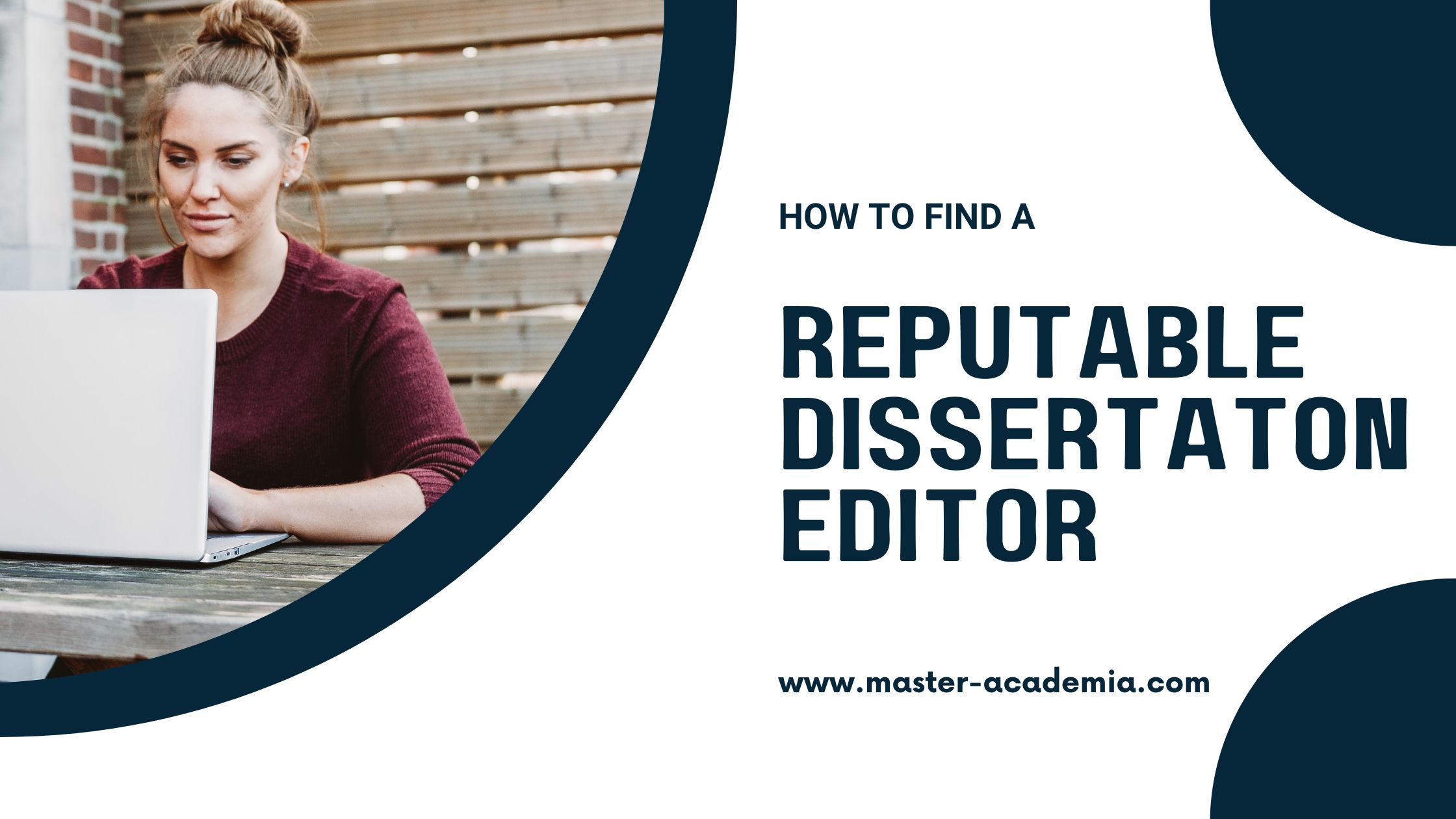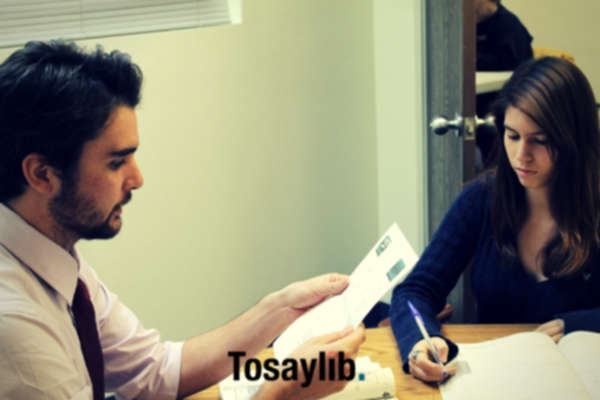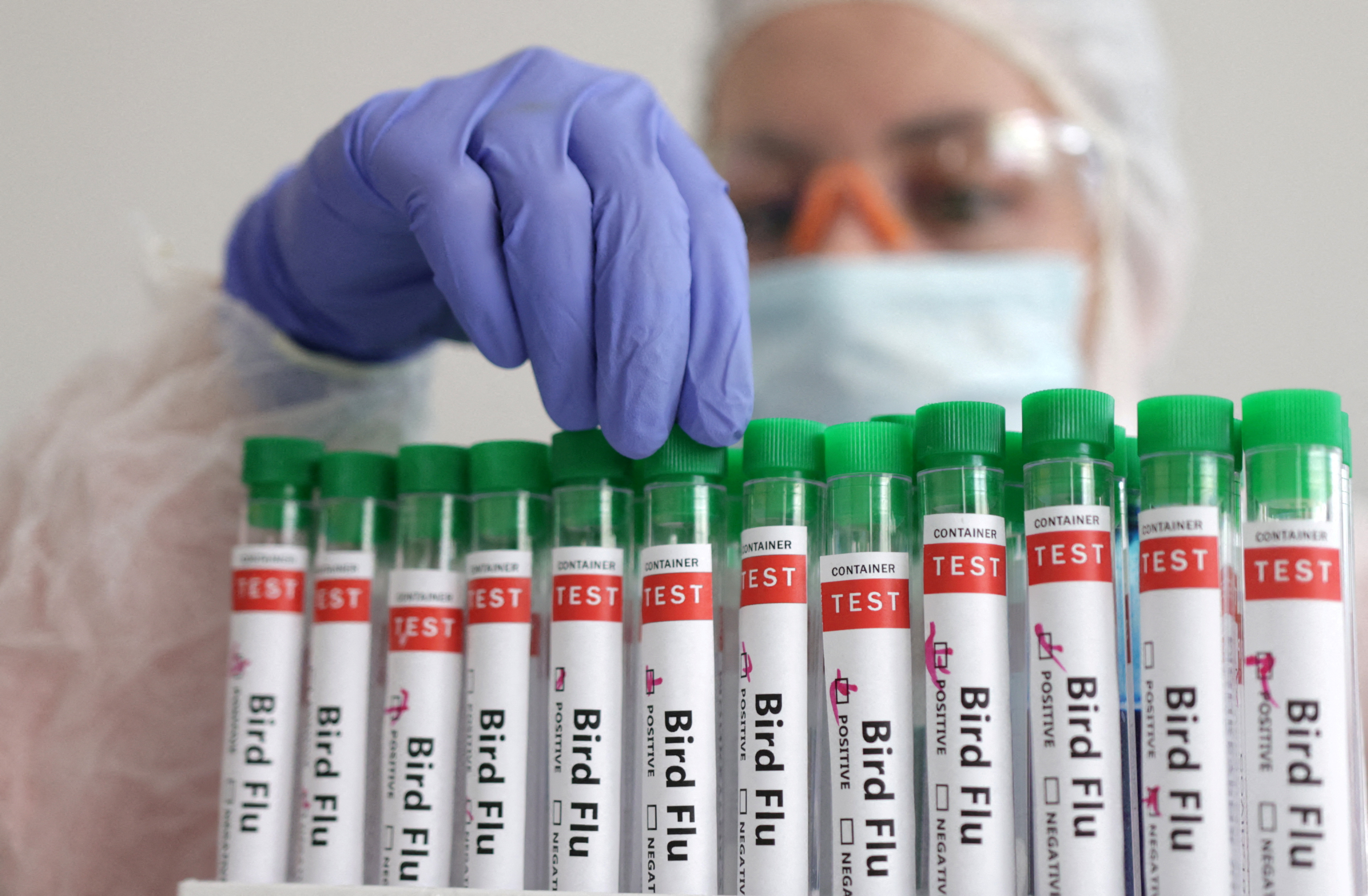Sample emails to your thesis supervisor
A good thesis requires good communication between you and your thesis supervisor. This includes emails! Yet, even a simple email can lead to stress and overthinking. If you struggle to communicate with your thesis supervisor via email, have a look at six sample emails for inspiration.
Disclaimer: This post may contain affiliate links, which means I may earn a small commission if you make a purchase using the links below at no additional cost to you. I only recommend products or services that I truly believe can benefit my audience. As always, my opinions are my own.

General tips for emailing your thesis supervisor
Sample email to thesis supervisor inquiring about potential supervision, sample email to thesis supervisor setting up a meeting, sample email to thesis supervisor sharing post-meeting action points, sample email to thesis supervisor asking for feedback, sample email to thesis supervisor asking for support, sample email to thesis supervisor when not meeting a deadline.
Every relationship between student and thesis supervisor is unique. And everyone has a unique (email) writing style.
Nonetheless, there are a few general tips for emailing your thesis supervisor:
- Properly address your supervisor. In some contexts, it is acceptable that students address their supervisors on a first-name basis. In others, it would be completely unthinkable! So make sure to follow context-specific standards, and learn how to address your supervisor depending on their position and rank in the university hierarchy . When in doubt, always go for the more formal option (Dr. x, Professor x, Prof. Dr. x, Mr. x, Ms. x).
- Keep your emails short. No one wants to read an email of the length of a novel. Too much text can bury your main request. Always state clearly what you want. Don’t expect your thesis supervisor to read between the lines.
- Create accompanying calendar invites to your emails. Once you and your thesis supervisor/s agree on a meeting date via email, make sure that you send everyone involved a calendar invite via email. It will be greatly appreciated.
- Don’t overthink your emails too much. You may obsess about formulating a certain sentence or making sure no word is missing and no grammatical mistake is made. While emails to your supervisor should not read like a jotted-down text message, overthinking your emails is also a waste of time. Your supervisor will not judge you if your email includes one whacky sentence or a single spelling mistake.
The first email to a potential thesis supervisor tends to be very formal. If you have never met the potential thesis supervisor in person before, make sure to check out tips on how to cold-email professors. In the following sample email, however, we assume that the student and the potential thesis supervisor met before.

Successful (postgraduate) students are proactive and take matters into their own hands. Reaching out to their thesis supervisors to set up a meeting is one part of it. The following sample email contains a simple request from a student to meet with her thesis supervisor.
To get the most out of thesis supervision meetings , it is highly recommended that the student takes notes during the meeting. Based on these notes, the student then summarises the key takeaways from the meeting, or action points, so to speak. These action points will guide the student’s work until the next meeting, and provide a written record of agreements.
Sometimes, it does not make sense to wait for feedback until the next supervision meeting. Of course, students should not bombard their supervisors with constant questions via email. However, a kind request once in a while is usually accepted and appreciated. The following sample email showcases a student asking for feedback.
As a student, it can also happen that you get stuck. Often, it is better to reach out and ask your thesis supervisor for support, both in terms of content or any other challenges you experience. Don’t suffer in silence. The following sample email shows an example of a student asking for support.
And lastly, there are the unfortunate occasions where you made agreements with your thesis supervisor, which you cannot meet. Pulling an all-nighter is generally a bad idea, as sleep is crucial for efficient thesis writing . It might be smarter, to be honest, and open about it and to inform your thesis advisor in advance. In the following sample email, the student informs the supervisor that he cannot meet the agreed deadline.
Master Academia
Get new content delivered directly to your inbox.
Subscribe and receive Master Academia's quarterly newsletter.
Asking for a recommendation letter from a PhD supervisor
How many conferences postgrads should attend, related articles.

How to find a reputable academic dissertation editor

How to deal with procrastination productively during thesis writing

Better thesis writing with the Pomodoro® technique

PhD thesis types: Monograph and collection of articles
- Search All Scholarships
- Exclusive Scholarships
- Easy Scholarships to Apply For
- No Essay Scholarships
- Scholarships for HS Juniors
- Scholarships for HS Seniors
- Scholarships for College Students
- Scholarships for Grad Students
- Scholarships for Women
- Scholarships for Black Students
- Scholarships
- Student Loans
- College Admissions
- Financial Aid
- Scholarship Winners
- Scholarship Providers
Student-centric advice and objective recommendations
Higher education has never been more confusing or expensive. Our goal is to help you navigate the very big decisions related to higher ed with objective information and expert advice. Each piece of content on the site is original, based on extensive research, and reviewed by multiple editors, including a subject matter expert. This ensures that all of our content is up-to-date, useful, accurate, and thorough.
Our reviews and recommendations are based on extensive research, testing, and feedback. We may receive commission from links on our website, but that doesn’t affect our editors’ opinions. Our marketing partners don’t review, approve or endorse our editorial content. It’s accurate to the best of our knowledge when posted. You can find a complete list of our partners here .
How to Email Your Professor (With Examples)

Lisa Freedland is a Scholarships360 writer with personal experience in psychological research and content writing. She has written content for an online fact-checking organization and has conducted research at the University of Southern California as well as the University of California, Irvine. Lisa graduated from the University of Southern California in Fall 2021 with a degree in Psychology.
Learn about our editorial policies

Every academic year, more and more professors complain that students do not know how to write nor respond to emails. Often, students are simply not taught how to write such emails to begin with. Some students are entirely clueless about what they’re doing wrong. To help make sure you don’t make these same mistakes, we’re going to show you how to email your professor (with examples)!
Keep on reading so that you can be confident in what you’re saying before you even hit “send.”
Emailing professors: A how-to guide
We’re sure that you’ve emailed people before, whether teachers, coworkers, friends, or family, but emailing professors is a little different. Emailing professors requires a level of formality not typically required when emailing people you’re already familiar with (yes, even if you know the professor well!). So, to make sure you don’t leave a bad impression on your professors, we’ve established a few tips that you should go by before sending off that email. Let’s get into them!
Don’t miss: How to ask for letters of recommendation
Be professional
Perhaps most importantly, you should be professional when emailing your professors. But, what do we mean by this?
Simply, being professional when emailing your professors means using proper grammar, not using slang or emojis, and using their proper title (we’ll get into what this means next).
Further, if you’re asking for an extension for an assignment, giving a heads-up as to why you’ll be missing class, or anything along these lines, try not to give away too much personal information as to why. For example, rather than saying you have a stomach ache or caught the flu, you can instead say that you came down with an illness. The exact sickness (or reason) is not the most relevant information. Your professor will probably be grateful not to know anyway.
Apply to these scholarships due soon

$10,000 “No Essay” Scholarship

$2,000 Sallie Mae Scholarship

$40,000 Build a College List Scholarship

Niche $25,000 “No Essay” Scholarship

$25k “Be Bold” No-Essay Scholarship

$10,000 CollegeXpress Scholarship

$1,000 Appily Easy College Money Scholarship

$5,000 Christian Connector Scholarship

$2,000 No Essay CollegeVine Scholarship
Include their title + name.
Time for titles! If you’re not familiar with what titles are, titles refer to the words used before or after a person’s name that indicate a person’s position or role. When it comes to professors, students normally use either the title “Doctor” (abbreviated Dr.) or “Professor.”
And, as normally comes after someone’s title, you should be sure to include their last name after. So, let’s say you’re emailing a professor called Susan Robinson. You could start the email off with something like:
“Dear Dr. Robinson,” or “Hello Dr. Robinson,” or “Dear Professor Robinson,” or “Hello Professor Robinson,”
All these are fine choices, and it’s entirely up to you to choose whichever you prefer. And, if you haven’t quite noticed, it’s quite common to use “Dear” or “Hello” when starting off an email to a professor, but these aren’t your only options (just common ones). Whichever you use is, once again, up to your personal preference!
Don’t miss: How to make a budget in college
Say something nice
Yes, really. It doesn’t hurt to be nice when emailing professors, especially when you’re asking for their advice or help.
So, how do you start out with something nice? Well, typically, after greeting your professor with their title and name (as we demonstrated above), you’ll add something along the lines of:
- “Hope you had a great weekend.”
- “I hope you’re enjoying the beautiful weather today!”
- “Hope you’re doing well!”
Make sense? Some professors appreciate such niceties. Not only will it indicate that you realize they have a life outside of academia, but it’s also just a polite thing to do. Yes, admittedly, some professors might not care, but others will!
Give context (i.e. who you are)
College professors have tons of students. So, oftentimes (if not always), they may need a little reminder on how they know you. This is especially true if you’re not in touch with them frequently. This is exactly what you should do next – explain who you are!
If you’re a student of theirs, the easiest way to do this is to mention what class of theirs you’re enrolled in, and what time it meets (or, if there are names for each section, you can mention that instead). This will give them some context before you ask a question, so they can understand exactly what assignment, topic, or question it is you’re asking about. This might go something like:
“This is *insert your name* from the Psychology 101 section that meets Tuesdays and Thursdays from 1-2:30 P.M.”
Alternatively, if you’re not a student of theirs, explain your desired relationship to them (e.g., are you interested in enrolling in their class? Do you want to work in their research lab?). If this is the case for you, this might look like:
“This is *insert your name*, a second-year student majoring in Psychology. I am interested in enrolling in Psychology 102 next semester, and… *can ask/introduce your question here*”
Now, unless you are 100% sure that your professor knows who you are by name, we definitely recommend you don’t skip this step! It may be awkward if your professor has to ask who you are after your initial email, so, better safe than sorry!
Last, but not least, try to use your university email if you have one! This immediately signals to your professor that you’re either a student or faculty member at their college. Your school email may make them more inclined to look at your email.
Don’t miss: How to make money in college
Be straightforward
Since they have so many students, professors also receive a lot of emails. So, when emailing them, make sure to get straight to the point (no beating around the bush!). Be specific about your question, and provide context if needed. If you’ve already tried to solve your problem or answer your question in a number of ways, mention these. Doing so will cut down the amount of unnecessary emails sent back and forth. Also, it will also help you understand what tips or advice they shouldn’t give you (as you’ve already tried them).
On a similar note, if you have a question about a test or due date, we highly recommend checking your class syllabus first. These will contain your important test and due dates 99% of the time, if not more.
And, most importantly, remember to make your subject line specific and clear. For example, if you have a question about an assignment’s due date, your subject line could be something along the lines of “Question about Due Date of Assignment Name .” This will make it clear to the professor what the context of the email is, and will help avoid any misunderstandings.
After asking your question (or saying whatever you needed to say), it’s time to sign off! Most commonly, people will do this by using a “Best,”, “Thanks,” “Sincerely,” or something along those lines, followed by their name. If your university email does not include your full name, write both your first and last name in your sign off. This will make it clear to the professor who you are, even if they have another student with the same first name.
Start your scholarship search
- Vetted scholarships custom-matched to your profile
- Access exclusive scholarships only available to Scholarships360 members
A few examples
Time for a few examples! Here they are:
1. If you’re asking a professor a question about an upcoming test date:
Hello Dr. Johnson,
Hope your week is off to a great start!
This is John Smith from your Chemistry 404 Monday/Wednesday/Friday 11 am – 12 pm class. Last Monday, you mentioned that our upcoming midterm is scheduled for September 25th. However, on the class syllabus it says that the test is planned for September 21st. I was wondering on which of these dates the midterm will be taking place?
Thank you in advance.
2. Generalized email to a professor:
Dear Dr. Last Name ,
Hope you’re doing well!
This is Your name from Your class at time . I had a question about * elaborate on the question.*
We hope that you’re now well-versed on how to write an email to a professor of yours. However, how do you go about cold emailing a professor for a research opportunity? That’s a great question! Let’s see.
How to email a professor for research opportunities
Luckily, the format for emailing a professor for research is not too different from that of emailing any professor. So, if you’ve already read all our tips above, you’re off to a head start. However, there are a few differences.
Components to include
Before we get into what makes an email to a professor for research different, we should first list the basic components of this type of email (as they largely overlap with a normal email to a professor). Any email to a professor (for research) should:
- Have an informative subject line
- Be professional and straightforward
- Include their title and name
- Include why you want to join their research lab (why you’re interested in their research specifically)
- Mention any previous experience (if applicable)
- Elaborate on why research is important to you/will help you reach your goals
- Ask to schedule a time to meet or discuss possible research opportunities
- Your resume and transcript (attached to the email!)
Since we’ve already covered most of these components above (under Emailing Professors: A How-To Guide), we’ll now be focusing mainly on the unique aspects of writing an email to a professor for research.
Don’t miss: All about graduate assistantships
Do your research!
If you’re interested in doing research, now’s your time to show off your skills! Before you go about emailing any research professor for an opportunity to work in their lab, you must first know what their lab studies. Doing this research will help you elaborate on why you want to join their specific lab, rather than any others, which will help you stand out amongst possible applicants (and will help you know if you’re actually a good fit for the lab or not!).
Why are you interested in their research?
After you’ve done research on the research of the professor you’d like to work with, use this information to detail what exactly about their research interests you. This can normally be done within 1-2 sentences, and should be specific – make sure to relate it to your interests and goals! This may look something like:
I am particularly interested in topic . I recently read your name/year of research paper on topic and developed an interest in your research. Specifically, I was fascinated by mention one of the findings of the research paper . If possible, I would love the opportunity to work in your lab to help contribute to further research on this topic during time frame.
If this seems a little confusing right now, don’t fret! We have some actual examples for later, so you can get an idea of what this section should look like when real topics and findings are included.
Ask to schedule a meeting
Now, it’s time to schedule a meeting (or, at least ask to)! After you go about mentioning what you find interesting about their research and expressing an interest in working in their lab, you should make a request to meet with them. There’s a few different ways you can do this:
- “ If you know of any internship, volunteer, or work positions available in research over the summer, I would love to set up a time to talk about these potential opportunities.”
- “If you have time, I would love to set up a time to talk about potential research opportunities.”
- “Would you be available to meet sometime this week to discuss your research?”
- “Would it be possible to meet with you to further discuss Topic and my possible involvement in research? I am available on Days and Times .”
Simple, right? After you ask to schedule a meeting, we highly recommend mentioning that your transcript and resume are attached to the email (and make sure to actually attach them). If you do not attach them, professors will often ask for them promptly afterwards (but not always).
Last, but not least, finish off the email with a nicety! You can do it more formally, with something like, “I greatly appreciate your time and consideration.” Or, you can do it more casually, with something along the lines of, “I look forward to hearing from you!”
Which way you choose is ultimately up to you – just make sure to be respectful!
More examples
Time for some more examples! These are real examples of emails written to professors, in which students were asking for research opportunities (although some names and info have been slightly altered). Here we go!
1. Email from a student without any prior research experience:
“Dear Dr. Lee,
I hope this email finds you well. My name is Abigail Thompson and I am a first-year undergraduate at the University of Minnesota, majoring in Psychology and minoring in Japanese. I am currently looking for opportunities to get involved with research over the summer.
Psychological research, especially that relating to social psychology, sounds very interesting to me, so I am hoping to get involved early into my undergraduate career. I have reviewed your faculty profile and am interested in name of the research paper , especially how you explored how people who have experienced traumas cope with what they’ve been through. If you know of any internship, volunteer, or work positions available in research over the summer, I would love to set up a time to talk about these potential opportunities. I greatly appreciate your time and consideration, and my resume and transcript are attached to this email.
2. Email from a student with prior research experience:
“ Dear Dr. Pudi,
I hope this email finds you well. My name is Jacqueline Fisher and I am a sophomore at UCLA, majoring in Psychology. I am currently looking for opportunities to get involved with research for this upcoming semester or over the summer.
Last summer, I assisted in research at the University of California, Berkeley, where we studied people’s psychological responses to traumatic events. I am also interested in developmental psychology and how your research studies the effects of marital conflict on children.
If you have time, I would love to set up a time to talk about potential research opportunities. I greatly appreciate your time and consideration, and my resume is attached to this email.
Have a wonderful time frame .
Jacqueline ”
Dear Reader,
You’ve now reached the end of the article!
I hope that this guide (and our example emails) have helped you gain the knowledge and skill of being able to email your professors (for class, research, or otherwise!). It’s sure to come in handy at some point, so, we wish you good luck, and send you off!
All the best,
Don’t miss: How to write an essay about yourself
Scholarships360 Recommended

10 Tips for Successful College Applications

Coalition vs. Common App: What is the difference?

College Application Deadlines 2023-2024: What You Need to Know
Trending now.

How to Convert Your GPA to a 4.0 Scale

PSAT to SAT Score Conversion: Predict Your Score

What Are Public Ivy League Schools?
3 reasons to join scholarships360.
- Automatic entry to our $10,000 No-Essay Scholarship
- Personalized matching to thousands of vetted scholarships
- Quick apply for scholarships exclusive to our platform
By the way...Scholarships360 is 100% free!

Thesis Statements
What this handout is about.
This handout describes what a thesis statement is, how thesis statements work in your writing, and how you can craft or refine one for your draft.
Introduction
Writing in college often takes the form of persuasion—convincing others that you have an interesting, logical point of view on the subject you are studying. Persuasion is a skill you practice regularly in your daily life. You persuade your roommate to clean up, your parents to let you borrow the car, your friend to vote for your favorite candidate or policy. In college, course assignments often ask you to make a persuasive case in writing. You are asked to convince your reader of your point of view. This form of persuasion, often called academic argument, follows a predictable pattern in writing. After a brief introduction of your topic, you state your point of view on the topic directly and often in one sentence. This sentence is the thesis statement, and it serves as a summary of the argument you’ll make in the rest of your paper.
What is a thesis statement?
A thesis statement:
- tells the reader how you will interpret the significance of the subject matter under discussion.
- is a road map for the paper; in other words, it tells the reader what to expect from the rest of the paper.
- directly answers the question asked of you. A thesis is an interpretation of a question or subject, not the subject itself. The subject, or topic, of an essay might be World War II or Moby Dick; a thesis must then offer a way to understand the war or the novel.
- makes a claim that others might dispute.
- is usually a single sentence near the beginning of your paper (most often, at the end of the first paragraph) that presents your argument to the reader. The rest of the paper, the body of the essay, gathers and organizes evidence that will persuade the reader of the logic of your interpretation.
If your assignment asks you to take a position or develop a claim about a subject, you may need to convey that position or claim in a thesis statement near the beginning of your draft. The assignment may not explicitly state that you need a thesis statement because your instructor may assume you will include one. When in doubt, ask your instructor if the assignment requires a thesis statement. When an assignment asks you to analyze, to interpret, to compare and contrast, to demonstrate cause and effect, or to take a stand on an issue, it is likely that you are being asked to develop a thesis and to support it persuasively. (Check out our handout on understanding assignments for more information.)
How do I create a thesis?
A thesis is the result of a lengthy thinking process. Formulating a thesis is not the first thing you do after reading an essay assignment. Before you develop an argument on any topic, you have to collect and organize evidence, look for possible relationships between known facts (such as surprising contrasts or similarities), and think about the significance of these relationships. Once you do this thinking, you will probably have a “working thesis” that presents a basic or main idea and an argument that you think you can support with evidence. Both the argument and your thesis are likely to need adjustment along the way.
Writers use all kinds of techniques to stimulate their thinking and to help them clarify relationships or comprehend the broader significance of a topic and arrive at a thesis statement. For more ideas on how to get started, see our handout on brainstorming .

How do I know if my thesis is strong?
If there’s time, run it by your instructor or make an appointment at the Writing Center to get some feedback. Even if you do not have time to get advice elsewhere, you can do some thesis evaluation of your own. When reviewing your first draft and its working thesis, ask yourself the following :
- Do I answer the question? Re-reading the question prompt after constructing a working thesis can help you fix an argument that misses the focus of the question. If the prompt isn’t phrased as a question, try to rephrase it. For example, “Discuss the effect of X on Y” can be rephrased as “What is the effect of X on Y?”
- Have I taken a position that others might challenge or oppose? If your thesis simply states facts that no one would, or even could, disagree with, it’s possible that you are simply providing a summary, rather than making an argument.
- Is my thesis statement specific enough? Thesis statements that are too vague often do not have a strong argument. If your thesis contains words like “good” or “successful,” see if you could be more specific: why is something “good”; what specifically makes something “successful”?
- Does my thesis pass the “So what?” test? If a reader’s first response is likely to be “So what?” then you need to clarify, to forge a relationship, or to connect to a larger issue.
- Does my essay support my thesis specifically and without wandering? If your thesis and the body of your essay do not seem to go together, one of them has to change. It’s okay to change your working thesis to reflect things you have figured out in the course of writing your paper. Remember, always reassess and revise your writing as necessary.
- Does my thesis pass the “how and why?” test? If a reader’s first response is “how?” or “why?” your thesis may be too open-ended and lack guidance for the reader. See what you can add to give the reader a better take on your position right from the beginning.
Suppose you are taking a course on contemporary communication, and the instructor hands out the following essay assignment: “Discuss the impact of social media on public awareness.” Looking back at your notes, you might start with this working thesis:
Social media impacts public awareness in both positive and negative ways.
You can use the questions above to help you revise this general statement into a stronger thesis.
- Do I answer the question? You can analyze this if you rephrase “discuss the impact” as “what is the impact?” This way, you can see that you’ve answered the question only very generally with the vague “positive and negative ways.”
- Have I taken a position that others might challenge or oppose? Not likely. Only people who maintain that social media has a solely positive or solely negative impact could disagree.
- Is my thesis statement specific enough? No. What are the positive effects? What are the negative effects?
- Does my thesis pass the “how and why?” test? No. Why are they positive? How are they positive? What are their causes? Why are they negative? How are they negative? What are their causes?
- Does my thesis pass the “So what?” test? No. Why should anyone care about the positive and/or negative impact of social media?
After thinking about your answers to these questions, you decide to focus on the one impact you feel strongly about and have strong evidence for:
Because not every voice on social media is reliable, people have become much more critical consumers of information, and thus, more informed voters.
This version is a much stronger thesis! It answers the question, takes a specific position that others can challenge, and it gives a sense of why it matters.
Let’s try another. Suppose your literature professor hands out the following assignment in a class on the American novel: Write an analysis of some aspect of Mark Twain’s novel Huckleberry Finn. “This will be easy,” you think. “I loved Huckleberry Finn!” You grab a pad of paper and write:
Mark Twain’s Huckleberry Finn is a great American novel.
You begin to analyze your thesis:
- Do I answer the question? No. The prompt asks you to analyze some aspect of the novel. Your working thesis is a statement of general appreciation for the entire novel.
Think about aspects of the novel that are important to its structure or meaning—for example, the role of storytelling, the contrasting scenes between the shore and the river, or the relationships between adults and children. Now you write:
In Huckleberry Finn, Mark Twain develops a contrast between life on the river and life on the shore.
- Do I answer the question? Yes!
- Have I taken a position that others might challenge or oppose? Not really. This contrast is well-known and accepted.
- Is my thesis statement specific enough? It’s getting there–you have highlighted an important aspect of the novel for investigation. However, it’s still not clear what your analysis will reveal.
- Does my thesis pass the “how and why?” test? Not yet. Compare scenes from the book and see what you discover. Free write, make lists, jot down Huck’s actions and reactions and anything else that seems interesting.
- Does my thesis pass the “So what?” test? What’s the point of this contrast? What does it signify?”
After examining the evidence and considering your own insights, you write:
Through its contrasting river and shore scenes, Twain’s Huckleberry Finn suggests that to find the true expression of American democratic ideals, one must leave “civilized” society and go back to nature.
This final thesis statement presents an interpretation of a literary work based on an analysis of its content. Of course, for the essay itself to be successful, you must now present evidence from the novel that will convince the reader of your interpretation.
Works consulted
We consulted these works while writing this handout. This is not a comprehensive list of resources on the handout’s topic, and we encourage you to do your own research to find additional publications. Please do not use this list as a model for the format of your own reference list, as it may not match the citation style you are using. For guidance on formatting citations, please see the UNC Libraries citation tutorial . We revise these tips periodically and welcome feedback.
Anson, Chris M., and Robert A. Schwegler. 2010. The Longman Handbook for Writers and Readers , 6th ed. New York: Longman.
Lunsford, Andrea A. 2015. The St. Martin’s Handbook , 8th ed. Boston: Bedford/St Martin’s.
Ramage, John D., John C. Bean, and June Johnson. 2018. The Allyn & Bacon Guide to Writing , 8th ed. New York: Pearson.
Ruszkiewicz, John J., Christy Friend, Daniel Seward, and Maxine Hairston. 2010. The Scott, Foresman Handbook for Writers , 9th ed. Boston: Pearson Education.
You may reproduce it for non-commercial use if you use the entire handout and attribute the source: The Writing Center, University of North Carolina at Chapel Hill
Make a Gift

6 Email Templates to Ask Someone to be on Your Thesis Committee
By: Author Hiuyan Lam
Posted on Last updated: October 20, 2023
Categories Professional Etiquette

Writing a thesis is one of the most challenging parts of being an undergraduate or graduate student. You need to know how to ask someone to be on your thesis committee, especially if you are looking for a mentor to guide you through the writing process.
If you are currently starting the dissertation process, these unique email templates will help show you how to ask someone to be on your thesis committee.
How to ask someone to be on your thesis committee: When asking senior students
These email templates will help you figure out how to ask a senior student to be on your thesis committee. Senior students are perfect for helping you through the writing process. You can ask a student with whom you get along and share similar ideas.

When asking professors to be on your thesis committee
Your professor would be an invaluable addition to your thesis committee, especially since they could provide you with unique insight and constructive criticism. Here is how to ask someone to be on your thesis committee if the person is your professor.

You May Also Like:
30 Great Words to Describe a Teacher

How to ask someone to be on your thesis committee: When asking professionals in your field
Professionals can offer diverse and useful expertise if they choose to join your thesis committee. Here is how to ask someone to be on your thesis committee if you’re asking professionals in your field.

These are unique email templates that you can use when trying to figure out how to ask someone to be on your thesis committee. Whether it is your professor, a senior student in your faculty, or a professional in your field, these templates will help you get that positive response that you are seeking. If you are currently working on your thesis and wondering how to ask someone to be on your thesis committee, these templates will surely help you get some ideas.
What are your chances of acceptance?
Calculate for all schools, your chance of acceptance.
Your chancing factors
Extracurriculars.
How to Write a Strong Thesis Statement: 4 Steps + Examples

What’s Covered:
What is the purpose of a thesis statement, writing a good thesis statement: 4 steps, common pitfalls to avoid, where to get your essay edited for free.
When you set out to write an essay, there has to be some kind of point to it, right? Otherwise, your essay would just be a big jumble of word salad that makes absolutely no sense. An essay needs a central point that ties into everything else. That main point is called a thesis statement, and it’s the core of any essay or research paper.
You may hear about Master degree candidates writing a thesis, and that is an entire paper–not to be confused with the thesis statement, which is typically one sentence that contains your paper’s focus.
Read on to learn more about thesis statements and how to write them. We’ve also included some solid examples for you to reference.
Typically the last sentence of your introductory paragraph, the thesis statement serves as the roadmap for your essay. When your reader gets to the thesis statement, they should have a clear outline of your main point, as well as the information you’ll be presenting in order to either prove or support your point.
The thesis statement should not be confused for a topic sentence , which is the first sentence of every paragraph in your essay. If you need help writing topic sentences, numerous resources are available. Topic sentences should go along with your thesis statement, though.
Since the thesis statement is the most important sentence of your entire essay or paper, it’s imperative that you get this part right. Otherwise, your paper will not have a good flow and will seem disjointed. That’s why it’s vital not to rush through developing one. It’s a methodical process with steps that you need to follow in order to create the best thesis statement possible.
Step 1: Decide what kind of paper you’re writing
When you’re assigned an essay, there are several different types you may get. Argumentative essays are designed to get the reader to agree with you on a topic. Informative or expository essays present information to the reader. Analytical essays offer up a point and then expand on it by analyzing relevant information. Thesis statements can look and sound different based on the type of paper you’re writing. For example:
- Argumentative: The United States needs a viable third political party to decrease bipartisanship, increase options, and help reduce corruption in government.
- Informative: The Libertarian party has thrown off elections before by gaining enough support in states to get on the ballot and by taking away crucial votes from candidates.
- Analytical: An analysis of past presidential elections shows that while third party votes may have been the minority, they did affect the outcome of the elections in 2020, 2016, and beyond.
Step 2: Figure out what point you want to make
Once you know what type of paper you’re writing, you then need to figure out the point you want to make with your thesis statement, and subsequently, your paper. In other words, you need to decide to answer a question about something, such as:
- What impact did reality TV have on American society?
- How has the musical Hamilton affected perception of American history?
- Why do I want to major in [chosen major here]?
If you have an argumentative essay, then you will be writing about an opinion. To make it easier, you may want to choose an opinion that you feel passionate about so that you’re writing about something that interests you. For example, if you have an interest in preserving the environment, you may want to choose a topic that relates to that.
If you’re writing your college essay and they ask why you want to attend that school, you may want to have a main point and back it up with information, something along the lines of:
“Attending Harvard University would benefit me both academically and professionally, as it would give me a strong knowledge base upon which to build my career, develop my network, and hopefully give me an advantage in my chosen field.”
Step 3: Determine what information you’ll use to back up your point
Once you have the point you want to make, you need to figure out how you plan to back it up throughout the rest of your essay. Without this information, it will be hard to either prove or argue the main point of your thesis statement. If you decide to write about the Hamilton example, you may decide to address any falsehoods that the writer put into the musical, such as:
“The musical Hamilton, while accurate in many ways, leaves out key parts of American history, presents a nationalist view of founding fathers, and downplays the racism of the times.”
Once you’ve written your initial working thesis statement, you’ll then need to get information to back that up. For example, the musical completely leaves out Benjamin Franklin, portrays the founding fathers in a nationalist way that is too complimentary, and shows Hamilton as a staunch abolitionist despite the fact that his family likely did own slaves.
Step 4: Revise and refine your thesis statement before you start writing
Read through your thesis statement several times before you begin to compose your full essay. You need to make sure the statement is ironclad, since it is the foundation of the entire paper. Edit it or have a peer review it for you to make sure everything makes sense and that you feel like you can truly write a paper on the topic. Once you’ve done that, you can then begin writing your paper.
When writing a thesis statement, there are some common pitfalls you should avoid so that your paper can be as solid as possible. Make sure you always edit the thesis statement before you do anything else. You also want to ensure that the thesis statement is clear and concise. Don’t make your reader hunt for your point. Finally, put your thesis statement at the end of the first paragraph and have your introduction flow toward that statement. Your reader will expect to find your statement in its traditional spot.
If you’re having trouble getting started, or need some guidance on your essay, there are tools available that can help you. CollegeVine offers a free peer essay review tool where one of your peers can read through your essay and provide you with valuable feedback. Getting essay feedback from a peer can help you wow your instructor or college admissions officer with an impactful essay that effectively illustrates your point.

Related CollegeVine Blog Posts

- University Home
Search form
Undergraduate research opportunities.
- Research Ethics
- Preparing for Undergraduate Research
- UCSC Divisions
- UCSC Academic Options
- The Independent Project Option
- Join a Lab or Research Group
- Examples of Emails to Professors
- Other Research Opportunities
- STEM Summer Research
- UCSC Undergraduate Research Awards
- Application Tips & Deadlines
- What's Next?
- For Students
How to Email a Professor Regarding Research
Your email should:.
- have an informative subject line
- be formal: Dear Dr. Smith; Sincerely, Your Name
- not use Mrs. or Ms.
- NOT have slang, abbreviations, or emoticons
- address any qualifications the professor is looking for
- demonstrate your experience
- state specifically your interest in that research group (you need to read the professor's website)
- explain why research is important for your goals
- ask to schedule a meeting or say that you will be coming to office hours
DO NOT SEND THIS EMAIL
Generalized from an email to a UCSC Professor
Hi Joe,
My name is Name and I am a major in Major . Is there space in your lab for an undergraduate? If so, what is the pay rate?
Thanks, Name
DO SEND AN EMAIL LIKE THESE
General email to a stem professor.
Subject: Meeting to discuss undergraduate research opportunities in topic
Dear Professor X ,
I am a year student at university majoring in major . How you found out about the professor's research . Expression of interest in specific paper or topic. I would appreciate the chance to talk with you about your research in topic of interest and about possible undergraduate opportunities in your lab.
My experience in research experience or class, confirmed my intention to develop my research skills and goal. I know you are very busy. We could schedule an appointment or I can drop by your office hours on day and time .
I have attached my resume and unofficial transcript. Please let me know if there is any other information I can provide. I look forward to talking to you soon.
________________________________
Generalized from an email to a UCSC professor
Subject: Possible undergraduate research opportunities
I am a (year, major) at (university) and I am writing to ask about opportunities for undergraduate research in your lab beginning (time period) . I have conducted undergraduate research on (topic) with (names) in (program or class) . (Expression of interest in the topic) . I would like to continue a path of research on (topic) and would ultimately allow me to (career goal) . I am especially interested in your previous work on (describe a paper or talk) .
I have attached my CV and unofficial transcript to this e-mail, but if there is additional information that I have not included that you would like, I would be happy to provide it to you. Thank you for your consideration.
Your Name Email address
________________________
From University of Virginia, How to Sucessfully E-mail Professors
Dear Dr. Smith, My name is X and I'm a second year biology major at UVa. In my introductory and upper-level coursework, I've developed a passion for science and am extremely interested in pursuing independent research as an undergraduate. An extensive research experience will greatly help me consolidate my future career choice. I am personally greatly interested in the molecular biology of stem cells. Recently I read your 2011 paper on the role of microRNAs in the differentiation of muscle stem cells and became fascinated by your work. In particular, I found it amazing that microRNAs can alter the fate of a cell in such a profound way. If possible, I would love to start working on a long-term project in your lab beginning this summer. Would you be available to meet sometime this week to discuss your research? I would also be happy to volunteer in your lab for a few weeks before we commit to anything to see if this is a good match. My transcript and resume are attached in case you are interested. I look forward to hearing from you! Thank you, X
_________________________
Template from UC Irvine
Dear Professor X :
My name is Peter Anteater , and I am very interested in becoming involved in research in Subject Area . I am a X year student with a GPA of X . I have taken Courses and Additional Experiences . My goal is to Goal .
I have reviewed your faculty profile and am interested in the work that you have done. I was intrigued by your journal article, "Article Title." It Additional Information about Topic . I would like to get involved in research in this area because it will help me to better prepare for Goals .
Would it be possible to meet with you to further discuss Topic and my possible involvement in research? I am available Days and Times . I look forward to hearing from you.
Sincerely, Peter Anteater Student ID Address Phone Email
University of California Santa Cruz, 1156 High Street, Santa Cruz, CA 95064
© 2024 The Regents of the University of California. All Rights Reserved.
Privacy Policy and Terms of Use
Flow through your inbox
Flowrite turns your instructions into ready-to-send emails and messages across your browser.
.png)
For companies
November 16, 2022
How to write an to thesis supervisor email with an email template
How to reply to an to thesis supervisor email with an email template, how to write email to thesis supervisor using our email template.
Learn how to write better to thesis supervisor emails with our tips and templates.
Learn how to reply to to thesis supervisor emails with our tips and templates.
Learn how to write email to thesis supervisor using our tips and template
Table of contents
So you want to write the best to thesis supervisor email, but might be a bit unsure how. Here’s our question:
Do you wish you would never worry about how to write an to thesis supervisor email (or any other kind of email) again? Or think about what’s the proper email format? Or stress about grammar and punctuation?
We might just have the solution (spoiler alert: it’s amazing). Read on to unleash your email writing productivity, nail the next to thesis supervisor email, and save hours every week!
How to send an to thesis supervisor email
Flowrite is an email writer that uses artificial intelligence to turn short instructions into ready-to-send emails and messages across your browser.
Our smart template uses artificial intelligence to adapt to the situation and generate unique emails and messages, taking into account the recipient and previous message:
Try it yourself
General reply
Reply to: "
Hi Aaro, I came across your website and your email tool sounds amazing! Can you tell me a bit more about Flowrite and how it works? I'm curious to try it.Kind regards, Sam
Received message
I came across your website and your email tool sounds amazing!
Can you tell me a bit more about Flowrite and how it works? I'm curious to try it.
Kind regards, Sam
use Flowrite to write emails faster AI tool that turns words to emails no need to worry about format, grammar, or tone
Generate a reply
To thesis supervisor email format
This way you will never have to worry about getting your email format right again (or think about how to write the perfect to thesis supervisor email).
With Flowrite, formatting perfect emails is as easy as clicking a few buttons.
For the emails and messages you write daily
Flowrite's smart template gallery covers the most common emails across roles and teams.

Promotion announcement

Pre-meeting email

Self-introduction

Payment reminder

Salary increase request

Business inquiry

Project status update to client

PR outreach

Link building outreach

Breakup with sales prospect

Sales prospecting

Reply to a feature request

Influencer outreach

Testimonial request

Feedback on a task
.png)
Demo invitation
To thesis supervisor email template
Thanks to Flowrite, you can forget canned responses, countless manual email templates, copy and pasting, and typing as you know it.
Use Flowrite to to generate AI-powered messages with one click today, like this:
Share this article
Replying to an to thesis supervisor email might seem tricky, but it shouldn’t be.
Do you wish you would never worry about how to reply to an to thesis supervisor email (or any other kind of email) again? Or think about what’s the proper email format? Or stress about grammar and punctuation of your emails?
We might just have the solution (spoiler alert: it’s amazing). Read on to unleash your email writing productivity, nail the next reply email, and save hours every week!
Reply to to thesis supervisor email
Flowrite is an email writing tool that turns short instructions into ready-to-send email replies across your browser.
Our smart reply email template uses artificial intelligence to adapt to the situation and generate unique emails and messages, taking into account the recipient and received message:
To thesis supervisor response email format
Our email template collection covers the most common emails and messages across company functions and job descriptions, like replying to meeting invitations , helping you be your most productive self no matter what you work on.
This way you will never have to worry about getting your email format right again (or think about how to compose a reply to an to thesis supervisor email).
With Flowrite, formatting perfect reply emails is as easy as clicking a few buttons.
Reply to to thesis supervisor email template
Use Flowrite to to generate AI-powered reply messages with one click today. See it for yourself and test some of our templates below:
So you want to write the best email to thesis supervisor, but might be a bit unsure how. Here’s our question:
Do you wish you would never worry about how to write a type of email again? Or think about what’s the proper email format? Or stress about grammar and punctuation?
We might just have the solution (spoiler alert: it’s amazing). Read on to unleash your email writing productivity, nail your next email, and save hours every week!
How to send email to thesis supervisor
Flowrite is an AI email writer that turns short instructions into ready-to-send emails and messages across your browser.
Email format for to thesis supervisor
Our email template collection covers the most common emails and messages across company functions and job descriptions, like follow-ups , thank you emails , and reminder emails .
This way you will never have to worry about getting the email format right again (or think about how to write the perfect email to thesis supervisor).
Email to thesis supervisor template
Use Flowrite to to generate AI-powered messages with one click today. See it for yourself and test some of our templates below:

We use cookies to analyze site performance and deliver a better experience for visitors.
%20(1).png)
Product updates
Read the latest →
%20(1).png)
About Flowrite
Get to know us →
Productivity

© 2023 Flowrite

May 15, 2024
Tips and Resources for a Successful Summer of Dissertation Writing
By Yana Zlochistaya
Summer can be a strange time for graduate students. Gone are the seminars and workshops, the student clubs, and the working group, that structured the semester and provided us with a sense of community. Instead, we’re faced with a three-month expanse of time that can feel equal parts liberating and intimidating. This double-edged freedom is only exacerbated for those of us in the writing stage of our dissertation, when isolation and a lack of discipline can have a particularly big impact. For those hoping not to enter another summer with lofty plans, only to blink and find ourselves in August disappointed with our progress, we’ve compiled some tips and resources that can help.
According to Graduate Writing Center Director Sabrina Soracco, the most important thing you can do to set yourself up for writing success is to clarify your goals. She recommends starting this process by looking at departmental requirements for a completed dissertation. Consider when you would like to file and work backwards from that point, determining what you have to get done in order to hit that target. Next, check in with your dissertation committee members to set up an accountability structure. Would they prefer an end-of-summer update to the whole committee? A monthly check-in with your chair or one of your readers? Setting up explicit expectations that work for you and your committee can cut through the aimlessness that comes with a major writing project.
For those early on in their dissertation-writing process, a committee meeting is also a valuable opportunity to set parameters. “One of the problems with the excitement for the discipline that happens post-quals is that it results in too many ideas,” says Director Soracco. Your committee members should give you input on productive research directions so that you can begin to hone in on your project. It is also important to remember that your dissertation does not have to be the end-all-and-be-all of your academic research. Ideas that do not fit into its scope can end up becoming conference papers or even book chapters.
Once you have a clear goal that you have discussed with your committee, the hard part begins: you have to actually write. The Graduate Writing Center offers several resources to make that process easier:
- The Graduate Writing Community. This is a totally remote, two-month program that is based on a model of “gentle accountability.” When you sign up, you are added to a bCourses site moderated by a Graduate Writing Consultant. At the beginning of the week, everyone sets their goals in a discussion post, and by the end of the week, everyone checks in with progress updates. During the week, the writing consultants offer nine hours of remote synchronous writing sessions. As a writing community member, you can attend whichever sessions work best for your schedule. All that’s required is that you show up, set a goal for that hour, and work towards that goal for the length of two 25-minute Pomodoro sessions . This year’s summer writing community will begin in June. Keep your eye on your email for the registration link!
- Writing Consultations : As a graduate student, you can sign up for an individual meeting with a Graduate Writing Consultant. They can give you feedback on your work, help you figure out the structure of a chapter, or just talk through how to get started on a writing project.
- Independent Writing Groups: If you would prefer to write with specific friends or colleagues, you can contact Graduate Writing Center Director Sabrina Soracco at [email protected] so that she can help you set up your own writing group. The structure and length of these groups can differ; often, members will send each other one to five pages of writing weekly and meet the next day for two hours to provide feedback and get advice. Sometimes, groups will meet up not only to share writing, but to work in a common space before coming together to debrief. Regardless of what the groups look like, the important thing is to create a guilt-free space. Some weeks, you might submit an outline; other weeks, it might be the roughest of rough drafts; sometimes, you might come to a session without having submitted anything. As long as we continue to make progress (and show up even when we don’t), we’re doing what we need to. As Director Soracco puts it, “it often takes slogging through a lot of stuff to get to that great epiphany.”
Yana Zlochistaya is a fifth-year graduate student in the Department of Comparative Literature and a Professional Development Liaison with the Graduate Division. She previously served as a co-director for Beyond Academia.
- Skip to main content
- Keyboard shortcuts for audio player
Your Health
- Treatments & Tests
- Health Inc.
- Public Health
Why writing by hand beats typing for thinking and learning
Jonathan Lambert

If you're like many digitally savvy Americans, it has likely been a while since you've spent much time writing by hand.
The laborious process of tracing out our thoughts, letter by letter, on the page is becoming a relic of the past in our screen-dominated world, where text messages and thumb-typed grocery lists have replaced handwritten letters and sticky notes. Electronic keyboards offer obvious efficiency benefits that have undoubtedly boosted our productivity — imagine having to write all your emails longhand.
To keep up, many schools are introducing computers as early as preschool, meaning some kids may learn the basics of typing before writing by hand.
But giving up this slower, more tactile way of expressing ourselves may come at a significant cost, according to a growing body of research that's uncovering the surprising cognitive benefits of taking pen to paper, or even stylus to iPad — for both children and adults.
Is this some kind of joke? A school facing shortages starts teaching standup comedy
In kids, studies show that tracing out ABCs, as opposed to typing them, leads to better and longer-lasting recognition and understanding of letters. Writing by hand also improves memory and recall of words, laying down the foundations of literacy and learning. In adults, taking notes by hand during a lecture, instead of typing, can lead to better conceptual understanding of material.
"There's actually some very important things going on during the embodied experience of writing by hand," says Ramesh Balasubramaniam , a neuroscientist at the University of California, Merced. "It has important cognitive benefits."
While those benefits have long been recognized by some (for instance, many authors, including Jennifer Egan and Neil Gaiman , draft their stories by hand to stoke creativity), scientists have only recently started investigating why writing by hand has these effects.
A slew of recent brain imaging research suggests handwriting's power stems from the relative complexity of the process and how it forces different brain systems to work together to reproduce the shapes of letters in our heads onto the page.
Your brain on handwriting
Both handwriting and typing involve moving our hands and fingers to create words on a page. But handwriting, it turns out, requires a lot more fine-tuned coordination between the motor and visual systems. This seems to more deeply engage the brain in ways that support learning.

Shots - Health News
Feeling artsy here's how making art helps your brain.
"Handwriting is probably among the most complex motor skills that the brain is capable of," says Marieke Longcamp , a cognitive neuroscientist at Aix-Marseille Université.
Gripping a pen nimbly enough to write is a complicated task, as it requires your brain to continuously monitor the pressure that each finger exerts on the pen. Then, your motor system has to delicately modify that pressure to re-create each letter of the words in your head on the page.
"Your fingers have to each do something different to produce a recognizable letter," says Sophia Vinci-Booher , an educational neuroscientist at Vanderbilt University. Adding to the complexity, your visual system must continuously process that letter as it's formed. With each stroke, your brain compares the unfolding script with mental models of the letters and words, making adjustments to fingers in real time to create the letters' shapes, says Vinci-Booher.
That's not true for typing.
To type "tap" your fingers don't have to trace out the form of the letters — they just make three relatively simple and uniform movements. In comparison, it takes a lot more brainpower, as well as cross-talk between brain areas, to write than type.
Recent brain imaging studies bolster this idea. A study published in January found that when students write by hand, brain areas involved in motor and visual information processing " sync up " with areas crucial to memory formation, firing at frequencies associated with learning.
"We don't see that [synchronized activity] in typewriting at all," says Audrey van der Meer , a psychologist and study co-author at the Norwegian University of Science and Technology. She suggests that writing by hand is a neurobiologically richer process and that this richness may confer some cognitive benefits.
Other experts agree. "There seems to be something fundamental about engaging your body to produce these shapes," says Robert Wiley , a cognitive psychologist at the University of North Carolina, Greensboro. "It lets you make associations between your body and what you're seeing and hearing," he says, which might give the mind more footholds for accessing a given concept or idea.
Those extra footholds are especially important for learning in kids, but they may give adults a leg up too. Wiley and others worry that ditching handwriting for typing could have serious consequences for how we all learn and think.
What might be lost as handwriting wanes
The clearest consequence of screens and keyboards replacing pen and paper might be on kids' ability to learn the building blocks of literacy — letters.
"Letter recognition in early childhood is actually one of the best predictors of later reading and math attainment," says Vinci-Booher. Her work suggests the process of learning to write letters by hand is crucial for learning to read them.
"When kids write letters, they're just messy," she says. As kids practice writing "A," each iteration is different, and that variability helps solidify their conceptual understanding of the letter.
Research suggests kids learn to recognize letters better when seeing variable handwritten examples, compared with uniform typed examples.
This helps develop areas of the brain used during reading in older children and adults, Vinci-Booher found.
"This could be one of the ways that early experiences actually translate to long-term life outcomes," she says. "These visually demanding, fine motor actions bake in neural communication patterns that are really important for learning later on."
Ditching handwriting instruction could mean that those skills don't get developed as well, which could impair kids' ability to learn down the road.
"If young children are not receiving any handwriting training, which is very good brain stimulation, then their brains simply won't reach their full potential," says van der Meer. "It's scary to think of the potential consequences."
Many states are trying to avoid these risks by mandating cursive instruction. This year, California started requiring elementary school students to learn cursive , and similar bills are moving through state legislatures in several states, including Indiana, Kentucky, South Carolina and Wisconsin. (So far, evidence suggests that it's the writing by hand that matters, not whether it's print or cursive.)
Slowing down and processing information
For adults, one of the main benefits of writing by hand is that it simply forces us to slow down.
During a meeting or lecture, it's possible to type what you're hearing verbatim. But often, "you're not actually processing that information — you're just typing in the blind," says van der Meer. "If you take notes by hand, you can't write everything down," she says.
The relative slowness of the medium forces you to process the information, writing key words or phrases and using drawing or arrows to work through ideas, she says. "You make the information your own," she says, which helps it stick in the brain.
Such connections and integration are still possible when typing, but they need to be made more intentionally. And sometimes, efficiency wins out. "When you're writing a long essay, it's obviously much more practical to use a keyboard," says van der Meer.
Still, given our long history of using our hands to mark meaning in the world, some scientists worry about the more diffuse consequences of offloading our thinking to computers.
"We're foisting a lot of our knowledge, extending our cognition, to other devices, so it's only natural that we've started using these other agents to do our writing for us," says Balasubramaniam.
It's possible that this might free up our minds to do other kinds of hard thinking, he says. Or we might be sacrificing a fundamental process that's crucial for the kinds of immersive cognitive experiences that enable us to learn and think at our full potential.
Balasubramaniam stresses, however, that we don't have to ditch digital tools to harness the power of handwriting. So far, research suggests that scribbling with a stylus on a screen activates the same brain pathways as etching ink on paper. It's the movement that counts, he says, not its final form.
Jonathan Lambert is a Washington, D.C.-based freelance journalist who covers science, health and policy.
- handwriting
I prompted AI to summarize Google's 45-page book about how to write the best AI prompts. Here are the key takeaways.
- Google handed out free guides on how to write successful AI prompts for Gemini at Google I/O.
- The booklet covers best practices for Google Workspace and gives examples for various professions.
- Some tips include drafting 21-word prompts that include persona, task, context, and format.

Google handed out booklets about how to write successful AI prompts at its big summer developer conference, Google I / O .
But you're still in luck even if you weren't one of the developers or press in attendance — Google has a free PDF version available for download on its website.
The guide breaks down how to best write AI prompts for Gemini for the company's Google Workspace apps, which include Gmail, Google Docs, Google Sheets, Google Meet, and Google Slides.
But there are some great takeaways in general for writing AI prompts.
It lists some helpful tips, like how the most successful AI prompts average around 21 words, and users should refrain from making them too long or too short. The guide also went over the four key points to hit in every prompt to receive the most useful responses.
The guide showcases how different roles can use Gemini to improve productivity. For example, an HR manager might use Gemini to create a script for an onboarding presentation, while a sales representative may use it to create an elevator pitch for a client.
Related stories
While the digital version is only 45 pages long, we uploaded the booklet to Google's Gemini to see the biggest takeaways (yes, we prompted AI to summarize a book about AI prompts).
Here's what it said in response.
Gemini for Google Workspace: A Guide for Busy Professionals
This guide is a comprehensive resource for anyone who wants to learn more about using Gemini for Google Workspace to improve their productivity and creativity. It covers a variety of use cases for different roles (Recruiter, HR Manager, Marketing Manager, Project Manager, Sales Manager) and provides specific prompts and examples to help them leverage Gemini's capabilities.
Key Takeaways
- Gemini for Google Workspace integrates with various Google Workspace apps (Gmail, Docs, Sheets, Slides, Meet) to assist with tasks like writing, organizing, summarizing information, creating visuals, and more.
- Effective prompts for Gemini should include Persona (who you are), Task (what you want to achieve), Context (background information), and Format (desired output style).
- Gemini can be used across various departments to improve productivity and streamline workflows.
Additional Tips
- Level Up Your Prompt Writing: The guide offers additional tips to help you improve your prompt writing skills. These include breaking down complex tasks into smaller prompts, using constraints to generate specific results, and tailoring your prompts to the desired tone and audience.
- Stay Up-to-Date: The guide recommends checking workspace.google.com and workspace.google.com/blog for the latest information on Gemini for Google Workspace.
Overall, this guide is a valuable resource for anyone who wants to learn more about using Gemini for Google Workspace to enhance their work within the Google ecosystem.
On February 28, Axel Springer, Business Insider's parent company, joined 31 other media groups and filed a $2.3 billion suit against Google in Dutch court, alleging losses suffered due to the company's advertising practices.
Watch: AI expert explains how to incorporate generative AI into your business strategy
- Main content
US FDA approves Amgen drug for small cell lung cancer
- Medium Text

- Company Amgen Inc Follow
- Company U.S. Food and Drug Administration Follow
Sign up here.
Reporting By Deena Beasley and Sneha S K; Editing by Bill Berkrot, Shailesh Kuber and Jamie Freed
Our Standards: The Thomson Reuters Trust Principles. New Tab , opens new tab

Business Chevron

Endeavor's $13 billion deal highlights push to sidestep minority shareholders
The plan is the latest example of a company's controlling investors risking lawsuits to avoid paying a higher deal price.

Most write-in votes in the Philly Democratic presidential primary weren’t for people. Why that signals success for ‘uncommitted.’
The other names Philly Democrats chose over Joe Biden ranged from Donald Trump to Jason Kelce.
/cloudfront-us-east-1.images.arcpublishing.com/pmn/4DXD25NRY5HDVHV3GTJG5AUHYA.jpg)
The vast majority of write-in votes cast in the Democratic presidential primary in Philadelphia were marked void, a likely sign of success for a campaign which urged voters to write the word uncommitted as a protest of President Joe Biden’s support of Israel.
Philly election officials indicated last month they would mark “uncommitted” votes as void rather than offer a specific tally for the word. Pennsylvania election law only requires counties to tally write-in votes cast for a person. As a result any write-in votes that listed uncommitted or another nonperson entity like the Phanatic or Gritty could be grouped together by counties as void or scattered.
While it’s unclear exactly what these voters wrote, 14,625 write-in ballots were marked void — making up more than 90% of the 16,216 write-in votes cast in the Democratic contest.
Driven by votes in left-leaning parts of the city, write-in votes made up 10% of the presidential primary vote in Philadelphia.
The proportion of void ballots vastly outpaces the proportion in previous high-profile Democratic primaries. In the 2022 primary for U.S. Senate, just under a third of write-in votes were tallied as void. The uptick can likely be attributed to the uncommitted campaign.
Progressive activists in the Uncommitted PA campaign, which was created by the Democratic Socialists of America, had sought to send a message to Biden in support of cease-fire in Gaza, where more than 35,000 people have been killed in the region since Israel launched its military operation following Hamas’ Oct. 7 attack.
“We claim every single write-in as an Uncommitted vote, and the vote breakdown in Philadelphia demonstrates our massive impact in the Presidential write-in space,” Uncommitted PA said in a statement
“Uncommitted PA believes that the outcome of the primary election serves as a strong indicator of voter sentiment in the November election. Voters in Pennsylvania feel conflicted about voting for Biden, as demonstrated by the massive write-in totals and undervote for Biden in PA.”
Other write-in choices, however, indicated that some Democratic voters were not motivated by Gaza.
Former President Donald Trump, who is the presumptive Republican nominee, earned more write-ins than any other candidate with 416 votes. He was followed by Robert F. Kennedy Jr., with 270 votes, and Cornel West, with 120 votes. Both are mounting independent campaigns.
Some voters also wrote in the names of prominent progressives, including 118 votes for U.S. Sen. Bernie Sanders and 10 for U.S. Rep. Alexandria Ocasio-Cortez. Philadelphians showed support for high-profile Pennsylvania Democrats as 10 voted for Gov. Josh Shapiro and six wrote in U.S. Sen. John Fetterman .
A handful of voters also turned towards sports and pop culture for their write-in votes. Four Democratic voters wrote in recently retired Eagles center Jason Kelce , while three tossed their support behind international pop star Taylor Swift, who also happens to be dating Kelce’s younger brother Travis.
In the Republican Presidential Primary 400 write-in votes were recorded. More than a quarter of those votes were marked void.
Biden earned 95 write-in votes from Republicans, followed by former U.S. Rep Liz Cheney — a Republican who voted for Trump’s second impeachment — who received 31 write-in votes. Twenty-nine Republican voters wrote in Robert F. Kennedy, while three wrote in Robert F. Kennedy Jr.
Kelce, is going from the Eagles to ESPN , also earned one vote in the GOP primary.
We've detected unusual activity from your computer network
To continue, please click the box below to let us know you're not a robot.
Why did this happen?
Please make sure your browser supports JavaScript and cookies and that you are not blocking them from loading. For more information you can review our Terms of Service and Cookie Policy .
For inquiries related to this message please contact our support team and provide the reference ID below.

IMAGES
VIDEO
COMMENTS
A good thesis requires good communication between you and your thesis supervisor. This includes emails! Yet, even a simple email can lead to stress and overthinking. If you struggle to communicate with your thesis supervisor via email, have a look at six sample emails for inspiration. Contents General tips for emailing your thesis supervisorSample email
Sample emails to your dissertation supervisor. Published on October 13, 2015 by Sarah Vinz. Revised on March 24, 2017. Sending good emails to your supervisor can sometimes be a challenge. We have created sample emails for different situations that you can use when writing to him or her.
A good thesis has two parts. It should tell what you plan to argue, and it should "telegraph" how you plan to argue—that is, what particular support for your claim is going where in your essay. Steps in Constructing a Thesis. First, analyze your primary sources. Look for tension, interest, ambiguity, controversy, and/or complication.
A master's student is required to pursue their dissertation/thesis under a professor at any institution in the same country or abroad. For this, what are the various points one should keep in mind while writing the cover letter/e-mail application? What should be the length of such e-mails? Also, if one is asking for financial support for pursuing the thesis, how should they mention it in the ...
1. How to write an excuse email to professor example. Dear Professor (name), My name is (your name), and I'm in your (insert details) class. First, I would like to apologize personally and explain why I have been unable to (insert what you need an excuse for). II would like to reassure you that this won't happen again.
Step 2: Write your initial answer. After some initial research, you can formulate a tentative answer to this question. At this stage it can be simple, and it should guide the research process and writing process. The internet has had more of a positive than a negative effect on education.
In your first email contact with your dissertation supervisor, it is wise to address him or her quite formally (such as "Dear Dr. X" or "Dear Prof. Y"). You do not know what your supervisor will be comfortable with, so it is best to play it safe. If your initial contact is too informal, your supervisor may get the wrong impression and ...
Thesis. Your thesis is the central claim in your essay—your main insight or idea about your source or topic. Your thesis should appear early in an academic essay, followed by a logically constructed argument that supports this central claim. A strong thesis is arguable, which means a thoughtful reader could disagree with it and therefore ...
And, as normally comes after someone's title, you should be sure to include their last name after. So, let's say you're emailing a professor called Susan Robinson. You could start the email off with something like: "Dear Dr. Robinson," or "Hello Dr. Robinson," or "Dear Professor Robinson," or "Hello Professor Robinson,".
A thesis is an in-depth research study that identifies a particular topic of inquiry and presents a clear argument or perspective about that topic using evidence and logic. Writing a thesis showcases your ability of critical thinking, gathering evidence, and making a compelling argument. Integral to these competencies is thorough research ...
A thesis statement . . . Makes an argumentative assertion about a topic; it states the conclusions that you have reached about your topic. Makes a promise to the reader about the scope, purpose, and direction of your paper. Is focused and specific enough to be "proven" within the boundaries of your paper. Is generally located near the end ...
A thesis statement: tells the reader how you will interpret the significance of the subject matter under discussion. is a road map for the paper; in other words, it tells the reader what to expect from the rest of the paper. directly answers the question asked of you. A thesis is an interpretation of a question or subject, not the subject itself.
Here is how to ask someone to be on your thesis committee if the person is your professor. 03 Dear Professor [Name], My name is [your name], and I am in my final year at [college or faculty name]. With the recommendation of my thesis advisors, [name of professors who are advising you], I am writing to humbly request that you be a member of my ...
Step 4: Revise and refine your thesis statement before you start writing. Read through your thesis statement several times before you begin to compose your full essay. You need to make sure the statement is ironclad, since it is the foundation of the entire paper. Edit it or have a peer review it for you to make sure everything makes sense and ...
Generalized from an email to a UCSC professor. Subject: Possible undergraduate research opportunities. Dear Professor X, I am a (year, major) at (university) and I am writing to ask about opportunities for undergraduate research in your lab beginning (time period). I have conducted undergraduate research on (topic) with (names) in (program or ...
How to send email to thesis supervisor. Flowrite is an AI email writer that turns short instructions into ready-to-send emails and messages across your browser. Our smart template uses artificial intelligence to adapt to the situation and generate unique emails and messages, taking into account the recipient and previous message: Try it yourself.
Below are some tips to writing a professional email to a university or academic program as a graduate applicant. Subject Line: Your subject line should not be too long or too short. A statement such as "Questions on Chemistry PhD Funding" or "Clarification: MA Cybersecurity Requirements" can convey the intention of your email.
Revised on April 16, 2024. A thesis is a type of research paper based on your original research. It is usually submitted as the final step of a master's program or a capstone to a bachelor's degree. Writing a thesis can be a daunting experience. Other than a dissertation, it is one of the longest pieces of writing students typically complete.
When to Write Thesis. The timing for writing a thesis depends on the specific requirements of the academic program or institution. In most cases, the opportunity to write a thesis is typically offered at the graduate level, but there may be exceptions. Generally, students should plan to write their thesis during the final year of their graduate ...
Independent Writing Groups: If you would prefer to write with specific friends or colleagues, you can contact Graduate Writing Center Director Sabrina Soracco at [email protected] so that she can help you set up your own writing group. The structure and length of these groups can differ; often, members will send each other one to five pages of ...
Writing by hand also improves memory and recall of words, laying down the foundations of literacy and learning. In adults, taking notes by hand during a lecture, instead of typing, can lead to ...
Trump could face a $100 million tax bill after the IRS said he tried to write off the same losses twice. The losses are tied to the 92-story Trump International Hotel and Tower in Chicago. The IRS ...
The guide breaks down how to best write AI prompts for Gemini for the company's Google Workspace apps, which include Gmail, Google Docs, Google Sheets, Google Meet, and Google Slides.
Dear Visitor: Welcome to the Massachusetts Senate Fiscal Year 2025 Budget Web Site. On this site, you will find information and documents related to the Senate Ways and Means 2025 Budget and full text of all Amendments offered by Senators to the Fiscal Year 2025 budget, and the action taken by the Senate on those amendments. Thank you for visiting this page, and please check back often!
Harvard College Writing Center 1 Thesis Your thesis is the central claim in your essay—your main insight or idea about your source or topic. Your thesis should appear early in an academic essay, followed by a logically constructed argument that supports this central claim.
The U.S. Food and Drug Administration on Thursday granted accelerated approval to Amgen's tarlatamab, a targeted immunotherapy for adults in the advanced stages of hard-to-treat small cell lung ...
4. I hope you …. Simply wishing the recipient well is a good way to start an email in a friendly way. Rather than the generic " Hope you're doing well " or the slightly stiff " I hope this email finds you well ," try a more specific phrasing to emphasize the sincerity of your wishes. Examples: Wishing them well.
Share via Email. Copy ... As a result any write-in votes that listed uncommitted or another non-person entity like the Phanatic or Gritty could be grouped together by counties as void or scattered. Advertisement. While it's unclear exactly what these voters wrote, 14,625 write-in ballots were marked void —making up more than 90% of the ...
'You write the laws you f----- idiots': Australia's reaction to Lord's stumping row revealed Third series of The Test reveals how Marcus Harris, David Warner and Usman Khawaja responded to ...
Connecting decision makers to a dynamic network of information, people and ideas, Bloomberg quickly and accurately delivers business and financial information, news and insight around the world